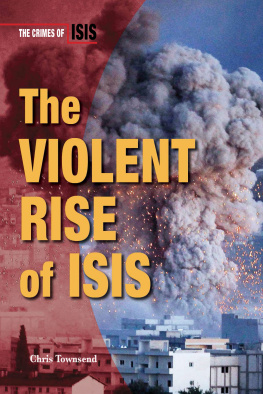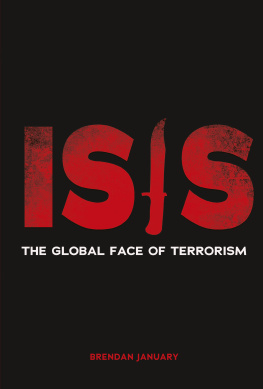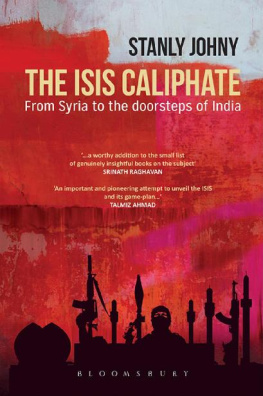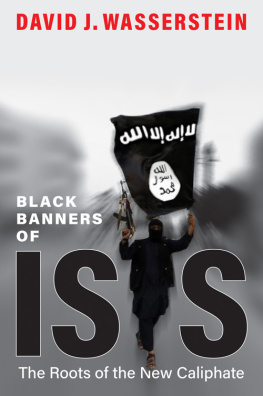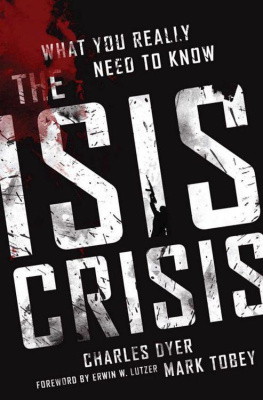Mosul, Iraq. February 2017.
A BDUL-WAHAB SWORE IT WAS A TRUE STORY.
His eyes were reflected in the rearview mirror as he sped his pickup through battle-beaten country. To the left, the setting sun cast a polaroid haze across brown fields and squat stone farmhouses. To the right was a ridge of mountains. Ahead was flat road and a darkening sky.
There was a big soldier named Will Thats how Abdul-Wahab put it. He pronounced the name Wull.
Wull, Wull. He sounded it out a couple more times, like he hadnt said it in a while.
He slowed the truck to roll through the final checkpoint manned by the Kurdish militia, whose green-and-red flag snapped in a bitter wind. A soldier in a scarf manned a machine gun on the barricade that marked the boundary. From there the road led sixty miles through territory controlled by the Iraqi military, to the edge of Mosul and the last bastions of the ISIS caliphate.
Will was one of the American special forces sent to Iraq more than a decade earlier to kill insurgents. The nights of the Iraq War had been filled with U.S. commando raids, and the Americans had created Abdul-Wahabs elite battalion to do the raids with them, an Iraqi version of the Delta Force or SEAL Team Six. The battalion had an English namethe Iraqi Counter-Terrorism Forceand was known by its initials, ICTF, which the men sewed onto their uniforms and painted on their Humvees. The Iraqis admired their American mentors. They picked up the special forces ethos, wore baseball caps and sunglasses, used words like fuck and bro and dude. But Will was different, Abdul-Wahab said. He would lose control.
Abdul-Wahab kept his foot on the gas pedal as he raced through a Christian town that seemed to be empty. ISIS had destroyed some of the houses, and the ones still standing were dark. Not a soul was visible except for a trio of Iraqi soldiers who sat on a leather couch on the roadside.
The photographer Warzer Jaff was in the passengers seat; I was in back. Abdul-Wahabs M16 was by my feet.
An ICTF veteran in his forties who had given up fighting, Abdul-Wahab had been ferrying Jaff and me to and from Mosul for months. He was stocky and gruff and expert at passing through the myriad checkpoints that led to the front lines, always knowing what to say or whom to call or when to gift his sunglasses to an inquiring militiaman. He was an ideal wheelman for navigating the strange tapestry of the alliance, with all its varied forces flying their banners around the city like armies in a medieval siege. His commanders used him for special transport: of weapons and supplies and officers who wanted to escape for a night to the hotels of Erbil, the Kurdish capital and nearest outpost of modernity, a place where they could find a decent dinner and booze or visit a mall or swim in a pool, and grasp at a moment of normalcy on the edge of the worlds most brutal war zone. As grumpy as Charon, he was forever making the forty-five-mile journey between the two valley cities, and when Jaff and I had no other way to get to the war, we went with him.
A folk song about an old battle was playing on the radio. You made your tribe proud of you I can hear them scream.
Abdul-Wahab was still talking about Will. First he began shooting animals on patrol. Then, on a raid one night, he shot an old man as he opened his front door. Abdul-Wahab said hed seen it happen. The mans daughter was screaming, beating her chest in grief, and Will said something like, I just gave him an injection, hes sleeping, and threw a mattress onto the old man. He killed a teenager in front of his mother, jamming his gun into the boys mouth. Abdul-Wahab said he saw the boys mangled head. He killed one man as Iraqi medics were treating him. He killed another while he lay in bed beside his wife.
I asked what had happened to Will. Abdul-Wahab said he didnt know. Will was transferred one day, and that was the last hed seen of him. But he reckoned that a man like him must have met his judgment eventually.
What he was telling me, I knew, was a ghost story. It reminded me of old reports of torture and orange jumpsuits and dead civilians, and that what America asked of its soldiers could unhinge them. The war that defined my parents generation, in Vietnam, had the draft and civil unrest with it. By the time the Iraq War started, when I was eighteen, America had a volunteer army, so people like me could carry on without worrying that our number would be called. The country still found itself with a guilty conscience, though, and in this war, with ISIS, the only U.S. soldiers on the front lines were the secret kind, small groups of commandos whose every mission was classified, while U.S. pilots and drone operators dropped bombs. It was left to local soldiers like the men of Abdul-Wahabs battalion to do the bulk of the fighting, and as far as most Americans and their politicians were concerned, the war was out of sight and out of mind. In a way it made sense: fewer Americans lost their lives or their minds or committed war crimes. There were fewer stories like Wills. Yet, in this new kind of U.S. war that culminated in Mosulthe deadliest urban battle in which America had engaged in at least a half a centurythe toll was still being paid by the local soldiers who were U.S. allies and by the civilians who were dying by the thousands in the cross fire. And I worried about the psyche of a country that still considered itself at war but was more disengaged than ever from it, with no sense of shared sacrifice or even collective responsibility. On the one hand, Americans seemed obsessed with ISIS, roiling with every terror attack, while on the other they made little effort to understand the enemy or the local soldiers doing most of the killing and dying to stop it.
Swaying in the cab of Abdul-Wahabs truck during our halting journeys to the front linesthe checkpoints more frequent, the sentries more intense as we neared the fightingI sometimes imagined the helicopters that had moved like a mass-transit system over the American battlefield in Vietnam and the correspondents who had used the choppers almost at will to traverse it. There were times when the war with ISIS felt looser and wilder. From Istanbul, where I lived, I could fly economy to cities such as Baghdad, Antakya, Berlin, and Erbil, all of them theaters in the same sprawling conflict. I could meet one day with the smugglers and fixers who worked for ISIS and on occasion with ISIS members themselves, and the next find myself on the other side of the mirror with the men who were confronting the jihadis: a Syrian rebel, an American artilleryman, a German border guard. Yet the closer I came to Mosul, the heart of the extremist statelet ISIS had carved into the map, the more the feeling was one of constriction.
Abdul-Wahab left us around midnight at a small country home on the approach to western Mosul. The ICTF was using the house as a rear base, and we unrolled our sleeping bags on a floor crowded with soldiers. A gunner called Bis Bis was on the phone with his mother in Baghdad, who put his son on, who said he wanted a new ball. Other soldiers were snoring. I took a couple of swigs from a pint of whiskey and pulled the bill of my hat over my face and fell asleep to the sound of U.S. airstrikes, which shook the walls through the night.
It was still dark the next morning when I awoke to the rumble of the battalions idling Humvees.
They were American-made and weighed 7,000 pounds with thick tires that came up to my waist. They were encased in metal armor, scarred by bullets and shrapnel, and painted black, like the armored bulldozers that would accompany them. Each Humvee had a turret on its rooftop outfitted with a heavy weapon: a machine gun or an antitank rocket system or a grenade launcher. The letters ICTF were stenciled on the turrets. The men of the ICTF had probably killed more extremists than any soldiers in the world, because they were good but also because they had been fighting for more than a decade. In recent months they had also taken so many casualties that if they were a U.S. unit, a commander would have declared them combat ineffective and pulled them from the battlefield. The soldiers wore uniforms that were the same apocalyptic black as their Humvees. Some looked like American commandos in their ball caps and wraparound sunglasses. Others covered their faces in checkered keffiyehs or black ski masks emblazoned with skeleton faces.


